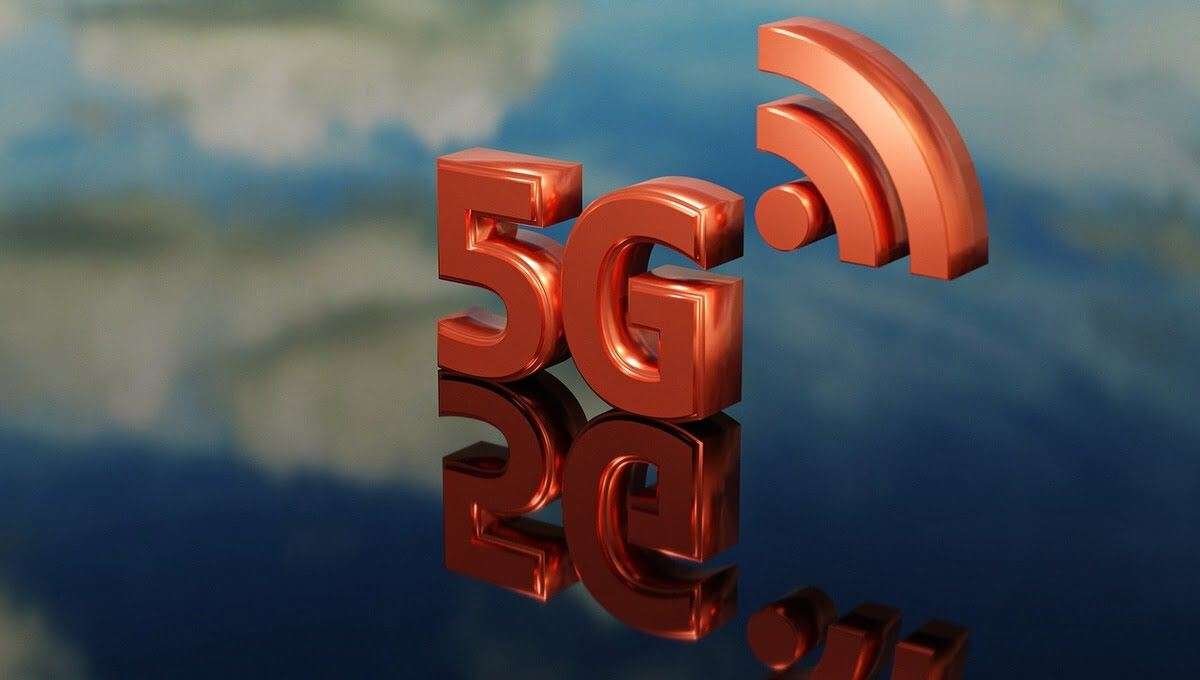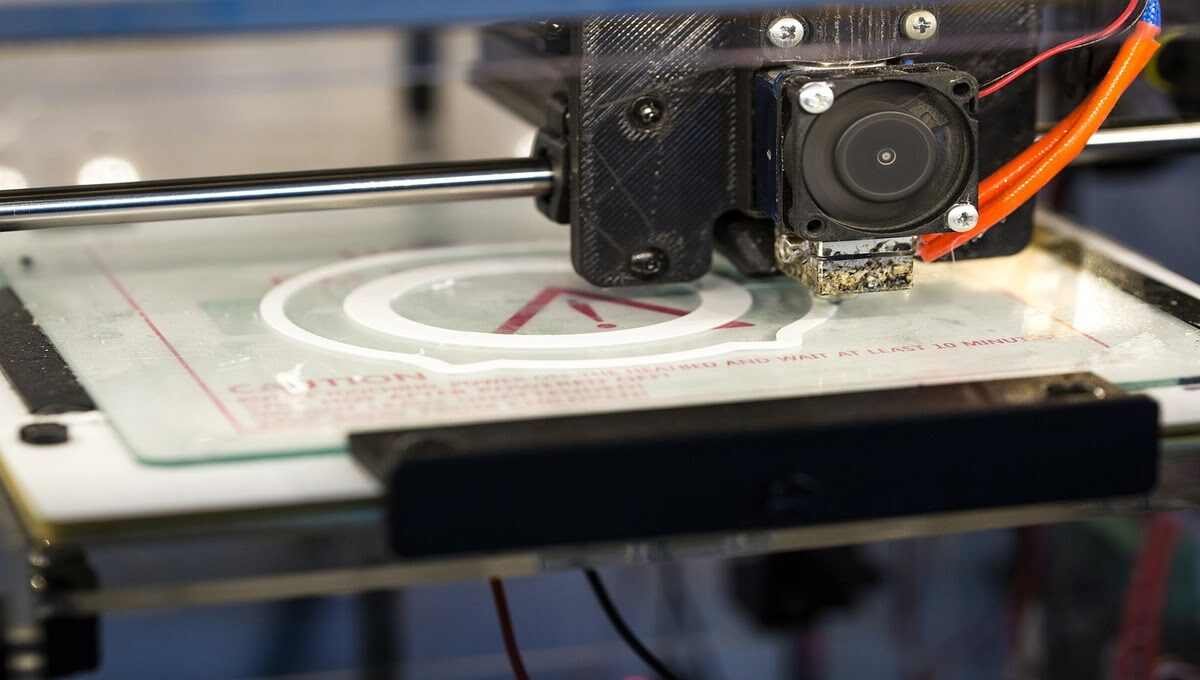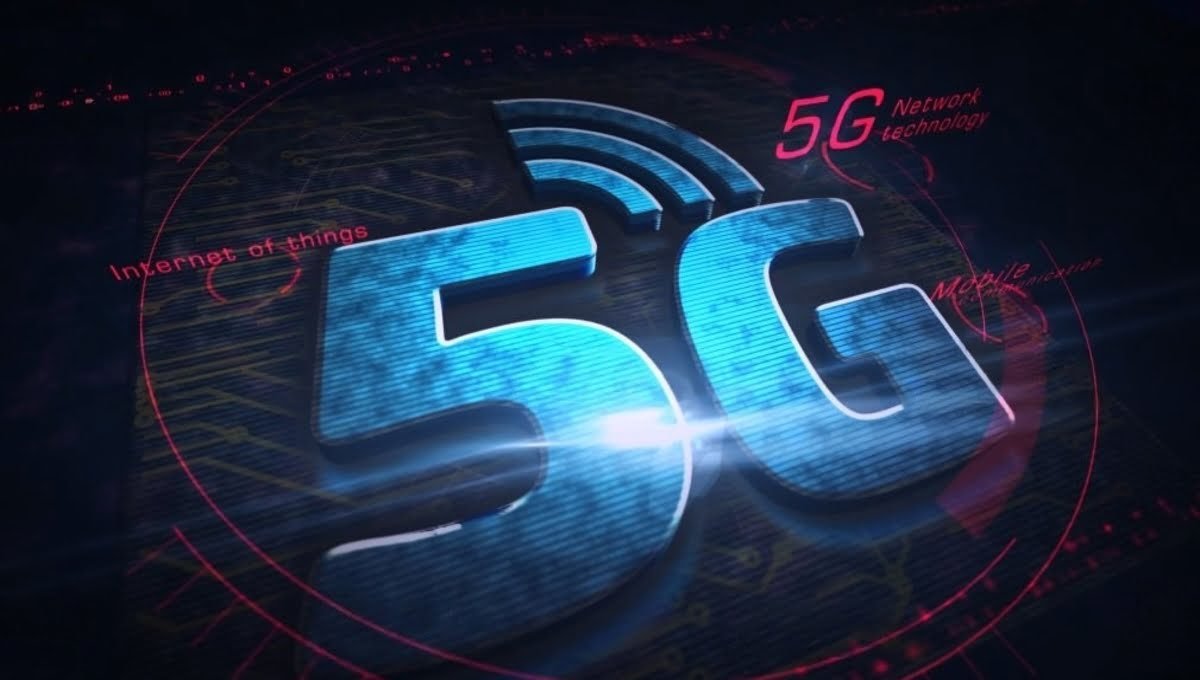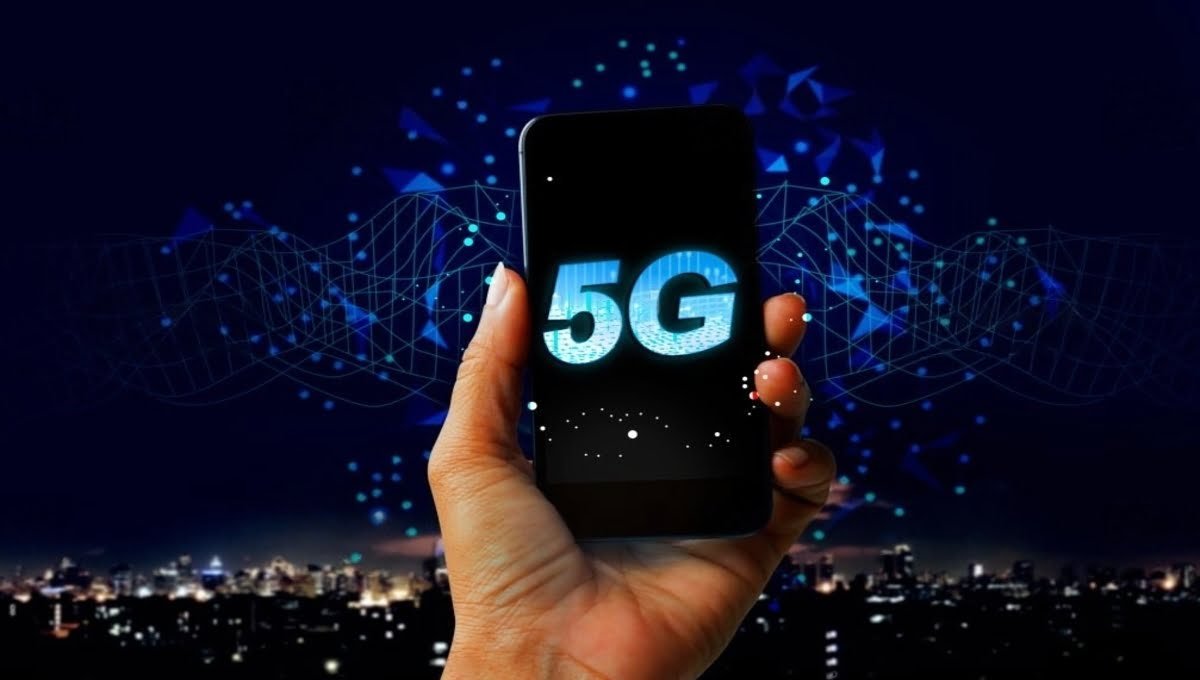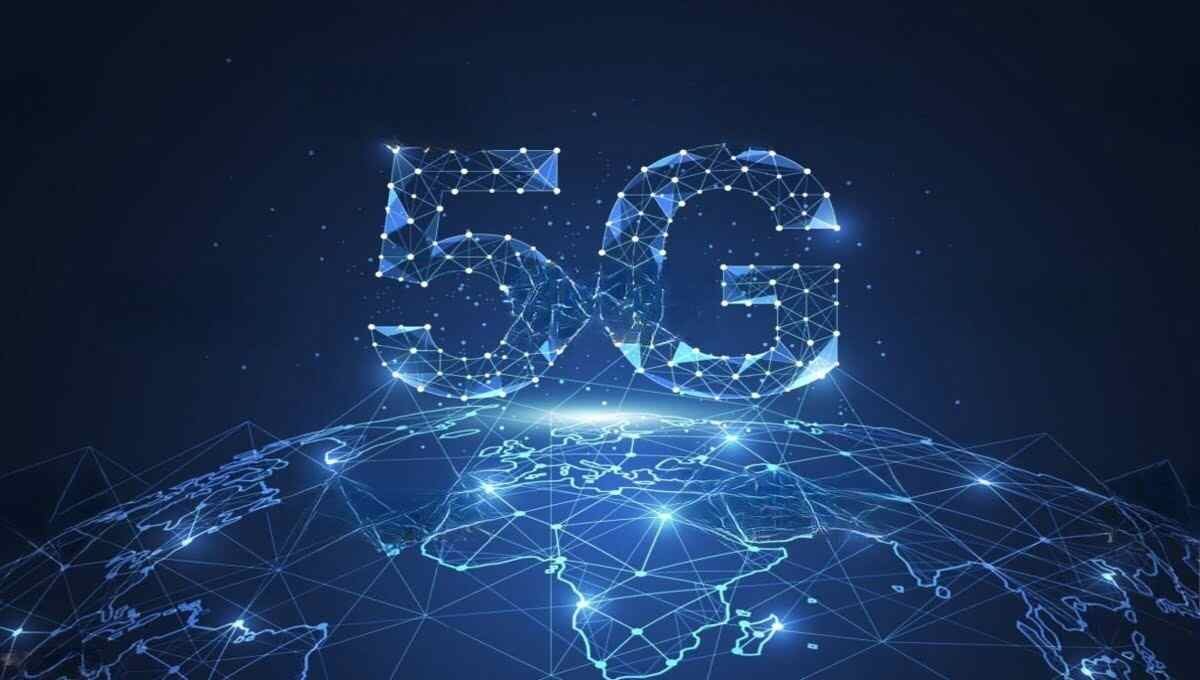Tech
“The Internet Unveiled: A Brief History Of the Internet”

In today’s interconnected world, the internet has become an integral part of our daily lives. It has revolutionized communication, transformed businesses, and provided access to an unprecedented amount of information. However, the internet, as we know it today, is the result of a fascinating journey that dates back several decades. In this article, we will delve into the history of the internet, exploring its origins, key milestones, and the profound impact it has had on society.
1. Introduction
The internet is a global network that allows computers and devices to connect and communicate with each other. It enables the transfer of data, information, and multimedia content across vast distances. The story of the internet begins with its humble origins in the late 1960s and has since evolved into a powerful tool that has transformed the world.
2. Precursors to the Internet
Before the internet, various precursors laid the groundwork for its development. One such precursor was the telegraph, which revolutionized long-distance communication in the 19th century. Later, in the mid-20th century, the advent of computers and the creation of computer networks set the stage for the birth of the Internet.
3. The Birth of the Internet
The Internet’s journey began in the late 1960s with the creation of ARPANET (Advanced Research Projects Agency Network). ARPANET was a network developed by the United States Department of Defense to facilitate communication between research institutions and universities. It utilized packet-switching technology, allowing data to be divided into smaller packets and sent across different paths.
4. ARPANET: The Foundation of the Internet
ARPANET played a crucial role in shaping the internet we know today. It expanded rapidly, connecting more institutions and paving the way for the development of protocols and standards that formed the backbone of the internet’s infrastructure.
5. The Emergence of Email and File Transfer
In the 1970s, significant breakthroughs occurred on ARPANET, including the development of email and file transfer protocols. These innovations revolutionized communication and file sharing, marking important milestones in the evolution of the Internet.
6. The World Wide Web: A Game-Changer
The 1990s witnessed the advent of the World Wide Web, which propelled the internet into the mainstream. Tim Berners-Lee, a British computer scientist, introduced the concept of the web, allowing users to navigate and access information through hypertext links. The web’s user-friendly interface and the ability to publish content quickly contributed to its rapid adoption.
7. The Dot-com Boom and Bust
In the late 1990s, the internet experienced an unprecedented surge in popularity, leading to the dot-com boom. Companies rushed to establish an online presence, and internet startups flourished. However, the bubble eventually burst, leading to a market crash and reshaping the internet landscape.
8. The Rise of Social Media and Online Communities
The early 2000s marked the emergence of social media platforms and online communities. Websites like My Space, Facebook, and YouTube revolutionized how people interacted and shared information online. Social media platforms became powerful tools for communication, entertainment, and even political activism.
9. Mobile Internet and the Era of Connectivity
With the advent of smartphones and mobile devices, the internet became accessible to a much larger audience. Mobile internet usage skyrocketed, and people could now connect to the web from virtually anywhere. This shift revolutionized the way we consume information, shop, and stay connected.
10. E-commerce and Online Shopping
The internet revolutionized commerce with the rise of e-commerce. Online shopping became increasingly popular, offering convenience and a wide range of products and services. Companies like Amazon and Alibaba transformed the retail industry, forever changing the way we shop.
11. The Internet of Things (IoT)
The Internet of Things (IoT) refers to the network of interconnected devices and objects that can communicate and exchange data. IoT has opened up new possibilities in various domains, from smart homes and cities to healthcare and transportation. It has the potential to revolutionize our daily lives further.
12. Cybersecurity and Privacy Concerns
As the internet grew in importance, so did concerns about cybersecurity and privacy. With more personal and sensitive information being shared online, protecting data and ensuring user privacy became paramount. Governments, organizations, and individuals continue to grapple with these challenges.
13. The Future of the Internet
The internet’s future holds exciting possibilities. Emerging technologies like artificial intelligence, blockchain, and 5G are poised to reshape the internet landscape further. As the world becomes increasingly connected, we can expect faster speeds, improved connectivity, and new innovations that will continue to transform our lives.
Conclusion
The internet has come a long way since its inception. From its humble beginnings as ARPANET to the vast global network it is today, the internet has revolutionized how we communicate, work, and access information. It has brought people closer, transformed industries, and opened up new opportunities. As we move forward, the internet’s evolution will undoubtedly continue, shaping our future in ways we can only imagine.
FAQs (Frequently Asked Questions): Insights for Curious Minds
1. How was the internet invented?
The internet was developed through the creation of ARPANET in the late 1960s, which laid the foundation for today’s interconnected network.
2. Who invented the World Wide Web?
The World Wide Web was invented by Tim Berners-Lee, a British computer scientist, in the early 1990s.
3. How has the internet impacted society?
The internet has had a profound impact on society, revolutionizing communication, business, education, and access to information.
4. What are some challenges facing the internet today?
Cybersecurity, privacy concerns, and the digital divide are among the challenges the internet faces today.
5. What does the future hold for the internet?
The future of the internet is promising, with emerging technologies like AI, blockchain, and 5G set to shape its evolution and bring about new possibilities.
Tech
What are the 19 emerging technologies in 2024?
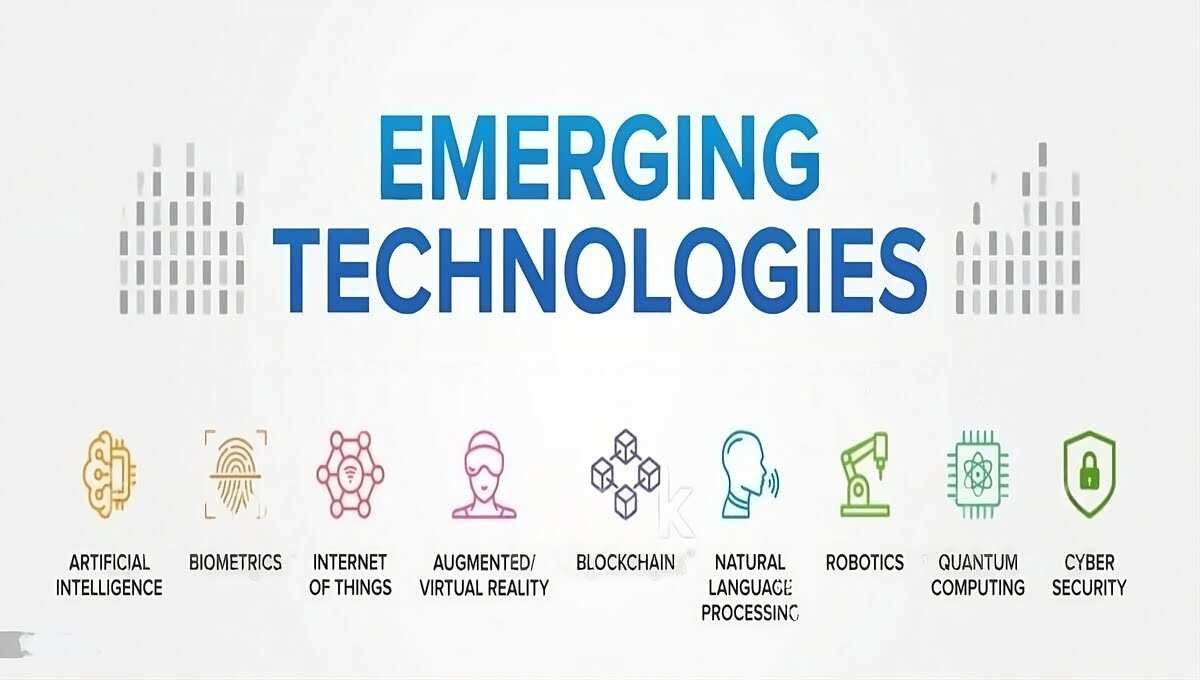
Introduction
As the world hurtles towards the year 2024, we find ourselves standing on the cusp of groundbreaking technological innovations that promise to reshape industries and the way we live. From artificial intelligence (AI) to quantum computing, the emerging technologies of 2023 are primed to revolutionize our lives in ways we could have only imagined before. In this article, we will explore the 19 most promising emerging technologies and provide links to resources where readers can delve deeper into each of these cutting-edge fields.
Artificial Intelligence: The Intelligent Revolution
Artificial intelligence (AI) is at the cutting edge of current innovation. Through its ability to simulate human intelligence, AI revolutionizes various sectors, from healthcare and finance to transportation and entertainment. Machine Learning, Deep Learning, and Neural Networks are LSI keywords.
AIs are learning from vast datasets and optimizing outcomes for real-world problems, propelling us toward an era of automation and intelligent decision-making.
Internet of Things (IoT): Connecting the Unconnected
The Internet of Things (IoT) seamlessly merges physical and digital realms, facilitating communication between devices. This interconnected network streamlines processes, enhancing efficiency and convenience. LSI Keywords: Smart Devices, Connectivity, IoT Ecosystem.
IoT’s transformative potential reaches into homes, industries, and smart cities, creating an unprecedented level of automation and data-driven insights.
Blockchain: Building Trust in a Decentralized World
Blockchain technology revolutionizes data storage and transactions through its decentralized and immutable nature. It ensures transparency, security, and trust in various applications, particularly in finance and supply chain management. LSI Keywords: Cryptocurrency, Smart Contracts, Distributed Ledger.
By removing intermediaries and ensuring tamper-proof records, blockchain paves the way for a trustless and efficient digital future.
Quantum Computing: Unleashing Exponential Processing Power
Quantum Computing pushes the boundaries of classical computing by leveraging quantum phenomena to perform complex calculations at an unimaginable speed. This breakthrough technology holds immense potential in solving previously insurmountable problems. LSI Keywords: Superposition, Entanglement, Quantum Bits.
Quantum computers can revolutionize cryptography, optimization, and scientific simulations, heralding a new era of computation.
5G Technology: Empowering a Hyperconnected World
The advent of 5G technology ushers in an era of ultra-fast, low-latency communication, transforming the way we interact with information and each other. LSI Keywords: Network Speed, IoT Connectivity, Enhanced Mobile Experience.
With increased data transfer rates and seamless connectivity, 5G enables a world of innovative applications, from augmented reality to remote surgery.
Nanotechnology: The Art of Manipulating the Minuscule
Nanotechnology deals with materials and devices on the nanoscale, unlocking a realm where atoms and molecules are harnessed to create groundbreaking advancements in medicine, electronics, and environmental sustainability. LSI Keywords: Nanomaterials, Nanomedicine, Nanoelectronics.
Nanotechnology enables us to engineer matter at the atomic level, leading to enhanced performance and novel applications.
Biotechnology: Shaping the Future of Life Sciences
Biotechnology harnesses biological systems and living organisms to develop products and technologies that advance healthcare, agriculture, and environmental conservation. LSI Keywords: Genetic Engineering, Biopharmaceuticals, Bioinformatics.
Biotechnology is transforming medicine, agriculture, and industry, promising a future of personalized treatments and sustainable practices.
Renewable Energy: Powering a Sustainable Planet
Renewable Energy sources, such as solar, wind, hydro, and geothermal, provide clean and sustainable alternatives to fossil fuels, reducing carbon emissions and mitigating climate change. LSI Keywords: Green Energy, Solar Power, Energy Transition.
As the world shifts toward renewable energy solutions, the potential for a greener and more sustainable future becomes attainable.
Autonomous Vehicles: Redefining Transportation
Autonomous vehicles are self-driving machines that leverage AI and sensor technologies to navigate without human intervention. LSI Keywords: Driverless Cars, Autonomous Drones, Mobility Revolution.
With the advent of autonomous vehicles, we envision a safer, more efficient transportation landscape, reshaping mobility as we know it.
Augmented Reality (AR) and Virtual Reality (VR): Blending Realities
AR and VR technologies blend the physical and digital worlds, offering immersive and interactive experiences in gaming, education, training, and entertainment. LSI Keywords: Mixed Reality, Immersive Technology, AR/VR Applications.
Augmented and Virtual Reality redefine the way we perceive reality, creating boundless opportunities for education, entertainment, and business.
3D Printing: Using Additive Manufacturing to Its Full Potential
3D Printing, or Additive Manufacturing, constructs objects layer by layer from digital models, revolutionizing prototyping, manufacturing, and personalized product development. LSI Keywords: Rapid Prototyping, 3D Printing Materials, Customized Production.
With 3D Printing, we witness the democratization of manufacturing, enabling innovative designs and reduced waste.
Biometrics: The Future of Identity Verification
Biometrics employs unique biological traits, such as fingerprints and facial recognition, for secure and seamless identity verification in various applications, from smartphones to border control. LSI Keywords: Biometric Authentication, Identity Management, Security.
Biometric technologies are shaping a future where our physical attributes become our keys, enhancing security and convenience.
Space Exploration: Journeying Beyond the Horizons
Space Exploration endeavors to explore the cosmos, uncovering mysteries of the universe, and paving the way for potential colonization of other celestial bodies. LSI Keywords: Space Missions, Astronauts, Interplanetary Travel.
Through ambitious space missions, humanity embarks on an awe-inspiring quest to understand our place in the cosmos.
Nanomedicine: Revolutionizing Healthcare at the Nanoscale
Nanomedicine employs nanotechnology to diagnose, treat, and prevent diseases at the molecular level, offering targeted and precise medical interventions. LSI Keywords: Theranostics, Nanoparticles, Precision Medicine.
Nanomedicine holds the promise of highly effective and personalized treatments, revolutionizing the future of healthcare.
Edge Computing: Bringing Intelligence to the Edge
Edge Computing brings data processing closer to the source of data generation, enhancing real-time capabilities and reducing latency for various applications, such as IoT and AI. LSI Keywords: Edge Devices, Fog Computing, Low Latency.
With edge computing, we unlock a world of responsive and decentralized data processing, powering the internet of the future.
Wearable Technology: Integrating Tech into Everyday Life
Wearable Technology encompasses devices that seamlessly integrate into our daily lives, enhancing health monitoring, fitness tracking, communication, and productivity. LSI Keywords: Smartwatches, Fitness Trackers, Wearable Sensors.
Wearable technology is empowering individuals to monitor and optimize their well-being, fostering a more connected and health-conscious society.
Clean Meat: Pioneering Sustainable Protein Production
Clean Meat, also known as cultured or lab-grown meat, offers a sustainable and ethical alternative to traditional livestock farming, reducing environmental impact and animal suffering. LSI Keywords: Cell-Based Meat, Cultured Meat Industry, Animal-Free Protein.
Clean Meat revolutionizes the food industry, promoting ethical and environmentally friendly protein sources.
Swarm Robotics: The Power of Collective Intelligence
Swarm Robotics emulates the behavior of social insect colonies to create decentralized systems of coordinated robots that work collectively to achieve complex tasks. LSI Keywords: Collective Robotics, Swarm Intelligence, Decentralized Systems.
Swarm Robotics opens new possibilities for disaster response, exploration, and efficient industrial processes.
Human-Machine Interaction: Bridging the Gap
Human-Machine Interaction (HMI) focuses on creating intuitive and natural ways for humans to interact with machines, enabling seamless integration into our daily lives. LSI Keywords: User Interface, Voice Assistants, Gesture Recognition.
HMI strives to create technology that understands and adapts to human behaviors and preferences.
Energy Storage: Empowering Sustainable Power Management
Energy Storage technologies play a critical role in storing excess renewable energy, ensuring a stable and resilient power supply for communities and industries. LSI Keywords: Battery Storage, Grid-Scale Energy Storage, Energy Resilience.
As renewable energy adoption grows, efficient energy storage becomes paramount for a sustainable and reliable power grid.
Drones: Redefining Possibilities in the Sky
Drones, or Unmanned Aerial Vehicles (UAVs), offer a wide range of applications, from aerial photography and surveillance to delivery services and environmental monitoring. LSI Keywords: Drone Technology, UAV Applications, Aerial Data Collection.
Drones are transforming industries and optimizing operations by providing cost-effective and efficient solutions.
Artificial Neural Networks: Emulating the Human Brain
Artificial Neural Networks (ANNs) mimic the human brain’s neural connections to process complex information, driving advancements in AI and machine learning. LSI Keywords: Neural Network Models, Deep Learning Algorithms, Cognitive Computing.
Conclusion
The year 2023 brings with it an exciting wave of emerging technologies that will redefine how we live, work, and explore the world. From the boundless possibilities of AI to the enigmatic realm of quantum computing, each technology promises to unlock new frontiers. Embracing these innovations responsibly will be the key to shaping a future that benefits humanity as a whole.
FAQs
Where can I find online courses to learn more about these emerging technologies?
Many e-learning platforms, like Coursera, Udemy, and edX, offer courses on these technologies.
How will emerging technologies impact job opportunities in the future?
While some jobs may be automated, emerging technologies will create new job roles and opportunities in various industries.
Are there any ethical concerns related to AI and robotics?
Yes, ethical considerations such as privacy, bias, and responsible AI usage are crucial aspects of AI and robotics development.
Which industry will benefit the most from nanotechnology advancements?
Nanotechnology has broad applications, but healthcare and electronics are among the industries that will see significant benefits.
Will space technology lead to human colonization of other planets?
Space technology may pave the way for future space exploration and potential colonization, but it’s a complex and long-term goal.
Tech
The Most Promising Technology Trends of 2024

It’s 2024 and the world is a very different place. Scientists, researchers, and innovators have made incredible discoveries that are transforming our lives in ways we never thought possible. From advances in medicine to new technologies that make life easier and more efficient, here are some of the most exciting discoveries of 2024 so far:
2024 some interesting technology
1. Autonomous Vehicles:
Autonomous vehicles have been around for several years but continue to evolve. In 2023, these self-driving cars can be found on roads all over the world as they become an increasingly popular form of transportation for people who want a convenient way to get from point A to point B without having to drive themselves or rely on public transit options like buses or trains.
2 . Artificial Intelligence (AI):
AI has come a long way since its inception decades ago and it continues to improve every day, largely due advancements in machine learning algorithms which allow computers “think” more like humans do when making decisions based on data inputs provided by users or other sources online, offline, etc. This technology is being used across many industries, such ashealthcare,e where it helps doctors diagnose illnesses quicker than ever before; finance where automated trading systems help traders make better investments; and education where AI tutors can provide personalized instruction tailored specifically for each student’s needs; manufacturingprocesses,s which use robots instead of human labor power; and much more!
3 . 3D Printing Technology:
3D printing has revolutionized how we create physical objects from digital designs – whether those designs are created by hand using CAD software programs or generated automatically through algorithms programmed into printers themselves! In addition, this technology also allows us to access materials not easily available otherwise because they’re expensive, rare, hard to find, etc. All you need is your design file!
4 . Renewable Energy Sources:
By now renewable energy sources such as solar panels, wind turbines & hydroelectric dams have become ubiquitous sights globally providing clean electricity & reducing dependence upon burning fossil fuels cfuels,g air pollution & global warming effects at a large scale. With technological advancements leading towards cost-effectivesolutions,s both residential homes & industrial complexes alike can benefit greatly from these green energy alternatives!
5 . Virtual Reality (VR):
VR headsets were once considered toys only accessible by hardcore gamers, but today they’re becoming ubiquitous tools used everywhere, -from classrooms teaching students about ancient history cultures& civilizations via interactive simulations; to medical professionals training surgeons virtually before performing real surgeries; to businesses conducting virtual
6 Space Exploration:
Astronauts aboard International Space Station (ISS) were able to explore further into space by visiting Mars’ moons Phobic & Deimos, which allowed them unprecedented access to Martian surface features like craters; volcanoes;valleys,s etc., allowing us better understand its past geological history too! Additionally, robotic probes sent out during 2023 also revealed interesting facts about other bodies within the solar system, like Jupiter’s icy moon Europa, which may also hold clues about potential life there as well…
7 Gene Editing Technology:
The gene-editing tool CRISPR-Cas9 was improved upon this year so it could be used even more accurately when targeting specific genes responsible for certain diseases/disorders – allowing researchers to selectively alter genetic material inside cells without causing any haelsewhere, r,e thereby potentially curing some incurable conditions once thought to impossible!
8 Quantum Computing:
Researchers have created powerful computers that use quantum mechanics principles instead of traditional ones, like logic gates or transistors, to process information faster than ever before—up to millions of times more quickly! This technology could revolutionize computing power across all sectors, including medicine research & development (R&D), financial services & banking operations, etc., making them much more efficient than before with no need for additional hardware resources required at all!
Frequently Asked Questions (FAQs)
How is technology changing the way we live and work?
Technology is changing the way we live and work in many ways. For example, AI is being used to automate tasks, VR and AR are being used for training and education, blockchain is being used to create secure and transparent transactions, and quantum computing is being used to develop new drugs and materials.
How can we prepare for the future of technology?
We can prepare for the future of technology by:
-Learning about new technologies
-Developing skills in areas that are likely to be in demand
-Being aware of the potential risks of new technologies
-Being critical consumers of technology
-Advocating for policies that protect our privacy and security
What does the future of technology look like?
The future of technology is full of possibilities. We can expect to see continued advances in AI, VR, AR, blockchain, quantum computing, 5G, edge computing, and the IoT. These technologies have the potential to transform our lives in ways that we can’t even imagine.What does the future of technology look like?
The future of technology is full of possibilities. We can expect to see continued advances in AI, VR, AR, blockchain, quantum computing, 5G, edge computing, and the IoT. These technologies have the potential to transform our lives in ways that we can’t even imagine.
Tech
How can AR VR and MR improve engineering instructions
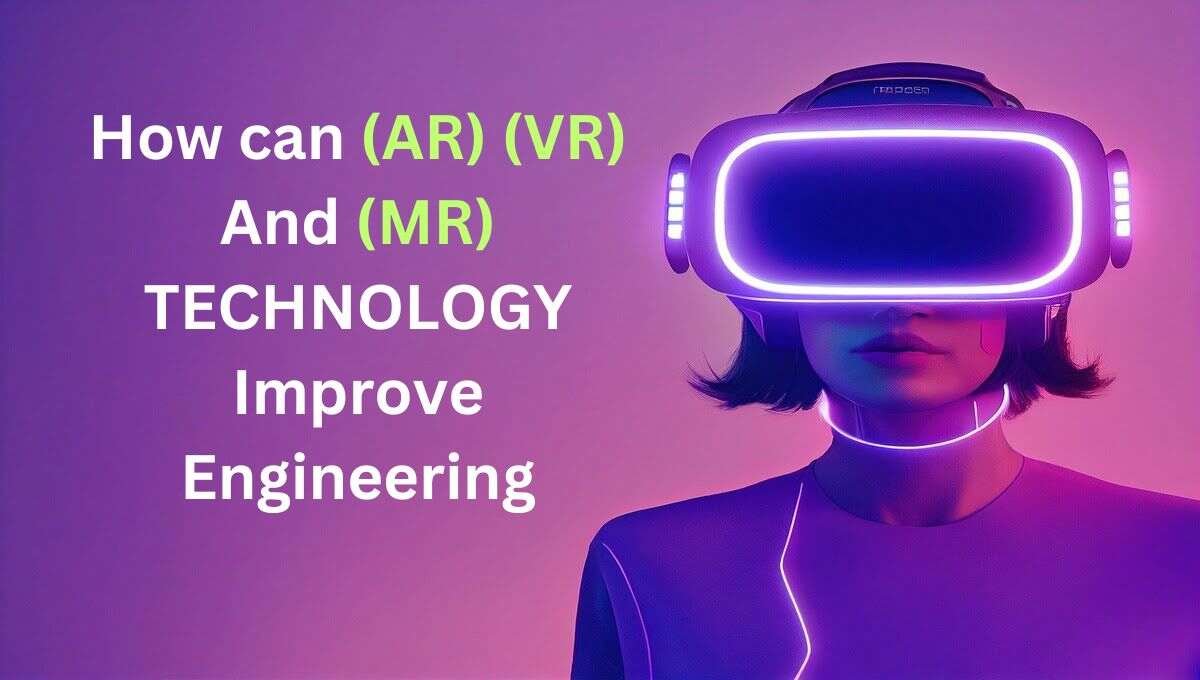
With the rapid advancements in technology, the fields of engineering and construction are being transformed in unimaginable ways. Augmented Reality (AR), Virtual Reality (VR), and Mixed Reality (MR) have emerged as revolutionary technologies that have the potential to revolutionize the engineering industry. In this article, we will explore How AR, VR, and MR are Revolutionizing Engineering. The various applications and benefits of AR, VR, and MR in engineering and how they can enhance efficiency, safety, collaboration, and overall project outcomes.
1. Introduction
Engineering projects often involve complex designs, intricate systems, and extensive planning. Traditional design, simulation, and collaboration methods have limitations in effectively communicating ideas and visualizing the final product. This is where AR, VR, and MR technologies provide immersive and interactive experiences that bridge the gap between the digital and physical worlds.
2. Understanding Augmented, Virtual, and Mixed Reality
Augmented Reality (AR):
Augmented reality (AR) overlays digital information on the real world. This can be done using a variety of devices, such as smartphones, tablets, and headsets. AR is often used to provide information about the real world, such as directions, translations, or product information. For example, you can use an AR app to see the name of a plant or the directions to a restaurant overlaid on your view of the real world.
Virtual reality
Virtual reality (VR) creates a completely immersive experience that completely blocks out the real world. This is done using a headset that displays a virtual world and tracks the user’s head movements. VR is often used for gaming, training, and entertainment. For example, you can use a VR headset to play a video game that allows you to explore a virtual world or to train for a job that requires you to operate machinery
Mixed reality
Mixed reality (MR) is a combination of AR and VR. It overlays digital information on the real world, but it also allows the user to interact with the virtual objects. This is done using a headset that displays a virtual world and tracks the user’s head and hand movements. MR is still in its early stages of development, but it has the potential to be used for a wide variety of applications, such as training, design, and manufacturing.
Here is a table summarizing the key differences between AR, VR, and MR:
| Feature | Augmented reality (AR) | Virtual reality (VR) | Mixed reality (MR) |
|---|---|---|---|
| Definition | Overlays digital information on the real world | Creates a completely immersive experience that blocks out the real world | Combines AR and VR by overlaying digital information on the real world and allowing the user to interact with the virtual objects |
| Devices | Smartphones, tablets, headsets | Headsets | Headsets |
| Applications | Navigation, education, gaming, marketing | Gaming, training, entertainment | Training, design, manufacturing |
3. Augmented Reality in Engineering

AR technology offers several applications that can significantly improve various aspects of engineering projects.
3.1. Training and Simulation
AR can be used to create realistic training simulations, allowing engineers to practice complex tasks in a controlled environment. For example, maintenance personnel can use AR headsets to overlay step-by-step instructions onto equipment, reducing errors and improving efficiency.
3.2. Design and Visualization
AR enables engineers to visualize 3D models and designs in the real world. By overlaying digital models onto physical environments, engineers can better assess spatial relationships, identify potential clashes, and make informed design decisions.
3.3. Maintenance and Repair
AR can assist engineers in the maintenance and repair of complex systems. AR enhances efficiency and accuracy by overlaying relevant information onto equipment, such as live sensor data or repair instructions, reducing downtime and costs.
4. virtual Reality in Engineering

VR technology provides immersive experiences that have significant implications for the engineering field.
4.1. Design and Prototyping
VR allows engineers to create virtual prototypes, enabling them to explore and evaluate designs before physical production. This iterative process helps identify design flaws, optimize performance, and save time and resources.
4.2. Collaboration and Communication
VR facilitates collaboration among geographically dispersed teams. Engineers can meet virtually in a shared virtual environment, visualize and manipulate 3D models together, and communicate effectively, regardless of physical location.
4.3. Training and Education
VR offers realistic training experiences for engineers, enabling them to learn and practice complex procedures in a safe and controlled environment. VR simulations can simulate hazardous scenarios or provide hands-on training for operating specialized equipment.
5. Mixed Reality in Engineering

MR combines the benefits of both AR and VR technologies, unlocking new possibilities in the engineering sector.
5.1. Enhanced Visualization and Interaction
MR allows engineers to overlay contextual information onto the real world, enhancing their understanding and interaction with physical objects. For example, architects can visualize building plans on-site, making real-time adjustments and improving design accuracy.
5.2. Remote Assistance and Support
MR enables remote collaboration and assistance for engineering projects. Experts can provide real-time guidance and support to field technicians using MR headsets, reducing travel costs and increasing efficiency
5.3. Field Operations and Maintenance
MR can improve field operations by overlaying real-time data and instructions onto the engineer’s field of view. This technology enables engineers to access critical information hands-free, increasing productivity and reducing errors.
6. Benefits of AR, VR, and MR in Engineering
Integrating AR, VR, and MR technologies in engineering projects brings numerous benefits to the industry.
6.1. Increased Efficiency and Accuracy
AR, VR, and MR technologies streamline processes, reduce errors, and increase efficiency. Engineers can make informed decisions and execute tasks more precisely by providing real-time information, visualizations, and simulations.
6.2. Enhanced Safety
AR, VR, and MR technologies can improve safety by simulating hazardous scenarios, conducting virtual safety training, and enabling remote assistance. Engineers can identify and mitigate risks before they occur, minimizing accidents and injuries.
6.3. Improved Collaboration
These technologies enhance collaboration by enabling real-time communication, visualization, and shared experiences among team members. Geographically dispersed teams can work together seamlessly, improving coordination and project outcomes.
6.4. Cost Savings
Using AR, VR, and MR technologies can result in cost savings throughout the project lifecycle. Engineers can minimize project delays and expenses by reducing rework, optimizing designs, and improving communication.
7. Challenges and Limitations
While AR, VR, and MR technologies hold immense potential, they also face specific challenges and limitations.
7.1. Technical Limitations
AR, VR, and MR technologies require robust hardware and software infrastructure to deliver optimal experiences. The quality of visuals, tracking accuracy, and device limitations can impact the user experience and adoption rate.
7.2. Cost and Implementation Challenges
Implementing AR, VR, and MR technologies can be costly, especially for small and medium-sized engineering firms. Initial investments in hardware, software, and training may pose financial challenges, limiting widespread adoption.
7.3. User Acceptance and Training
Integrating new technologies often requires a learning curve and changes in work practices. Engineers and workers may need training and support to adapt to the latest tools, affecting the pace of adoption and user acceptance.
8. Future Outlook
The future of AR, VR, and MR in engineering is promising. As technology advances, we can expect more sophisticated applications and improved accessibility. Integrating artificial intelligence and machine learning will further enhance these technologies’ capabilities, revolutionizing engineering practices.
Conclusion
AR, VR, and MR technologies can transform the engineering industry by improving efficiency, safety, collaboration, and project outcomes. From design and visualization to training and maintenance, these technologies offer numerous benefits that can revolutionize engineering practices. However, challenges such as cost, implementation, and user acceptance must be addressed for widespread adoption. The engineering sector should embrace these technologies and harness their transformative power as we move forward.
10. FAQs
A1. While the adoption of these technologies is growing, they have yet to be widely used across the entire engineering industry. However, many companies recognize their potential and gradually incorporate it into their workflows.
A2. These technologies enable remote collaboration by providing shared virtual environments where team members can visualize and manipulate 3D models. This facilitates effective communication and enhances collaboration, regardless of geographical distances.
A3. Yes, by improving efficiency, minimizing errors, and optimizing designs, these technologies can help reduce project costs. They enable better decision-making, reduce rework, and enhance communication, resulting in cost savings.
A4. Yes, there are limitations, such as technical requirements, initial implementation costs, and the need for user training and acceptance. These factors can impact the widespread adoption and implementation of these technologies.
A5. The future looks promising, with advancements in technology and increasing affordability. We can expect more sophisticated applications, improved user experiences, and further integration with artificial intelligence and machine learning, revolutionizing engineering practices.
VR in engineering mechanics
In this field, experts can create 3D models of industrial machinery and use virtual reality to identify and resolve technical problems. Additionally, a study demonstrated the potential of VR apps for teaching mechanical engineering.

 5G2 years ago
5G2 years agoHow 5G Technology Will Revolutionize Our Lives and Work

 5G2 months ago
5G2 months agoWhat is the difference between 5G and 5G Plus?

 Tech6 months ago
Tech6 months ago3d Printer Technology (Application) (History) And (Types)

 Computer2 years ago
Computer2 years ago“Bleeping Computer: Your Ultimate Guide to Cybersecurity”

 5G1 year ago
5G1 year agoDifference between 5G nsa and 5G sa

 5G1 year ago
5G1 year agoHow does 5g work on iPhone?

 5G1 year ago
5G1 year agoThe Future of 5G Technology : Revolutionizing Connectivity

 5G2 months ago
5G2 months agoWho has the fastest 5G network?

